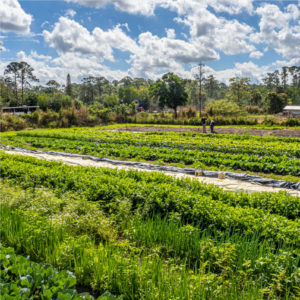By Mauricio Bellon, Research Professor
On July 8, I participated virtually in the German Sustainability Science Summit organized by the German Committee of Future Earth, a global network of scientists, researchers, and innovators collaborating for a more sustainable planet. During this meeting I participated in a session organized by a group that I belong to called EvolvES (Evolution for Earth Sustainability, also part of Future Earth) that aims at providing an evolutionary framework for biodiversity science. This session, called “Phylogenetic and genetic diversity: linking past and contemporary evolution to sustainability,” consisted of four presentations which were aimed at illustrating how evolutionary thinking, processes, insights and tools can contribute to earth sustainability, with a special emphasis on the application of an evolutionary perspective in food, health and conservation.
In the first presentation, my colleague Luc de Meester, director of the Leibniz Institute of Freshwater Ecology and Inland fisheries in Berlin, Germany, presented an overview of the issues that link evolution to sustainability. He identified four major routes by which this link can take place: “phylogenetic diversity (benefits from millions of years of evolution), eco-evolutionary dynamics and insurance (contemporary evolution in the Anthropocene), direct application of evolutionary biology in food, health and conservation and finally the evolutionary toolbox for sustainability.”
This was followed by an extremely interesting session by Rees Kassen, Professor at the University of Ottawa, Canada, on the lessons from COVID-19 for the application of evolutionary principles for sustainability. This presentation was relevant for obvious reasons, and provided an overview of the COVID-19 pandemic from an evolutionary perspective. The pandemic has refocused our attention on the importance of evolution for human well-being. He related the pandemic to two key evolutionary events: “spillover from animals to humans, and on-going evolution within and among human hosts.” He used these two events to explain how the pandemic has developed and how evolutionary thinking can help us prevent pandemics in the future and to improve the management of such events when they happen.
I made a presentation on how crop evolution is not a phenomenon of the past, but continues today driven by millions of smallholder farmers planting native crops and varieties in the developing world. These farmers create an evolutionary service to society by sustaining crop evolution that generates the broad and novel genetic variation necessary for crops to adapt to change. However, current agricultural development strategies and policies in the developing world promote crop productivity but ignore crop evolution. While it is often cited that we need higher agricultural productivity to feed nine billion people by the mid- 20th century, there is also a need to have the options that continued evolutionary processes provide to agriculture and food systems. So the challenge is to find the right balance between high crop productivity and the delivery of evolutionary services to agriculture and food systems.
The last presentation was by Licia Colli, Professor at the Università Cattolica del Sacro Cuore, Piacenza, Italy. Her talk was about livestock biodiversity for sustainable development. She talked about the importance of local biodiversity in domesticated animals, since this diversity is a reservoir of genetic variation not present in industrial breeds. It is fundamental to ensure food security, contributing to resilience and adaptability to future challenges. These features make this diversity key for sustainable intensification of food production and for the livelihoods of low-income smallholders. This biodiversity however, is threatened by environmental, management and socio-economic factors. Therefore it is important to find ways to conserve it. For example, by monitoring and characterizing the existing diversity, through conservation programs, bio-banking, reproductive technologies, increasing breed self-sustainability (e.g. typical products) and increased awareness and involvement of different stakeholders. Local breeds developed adaptive traits during the course of livestock evolution that represent an invaluable resource for future food security under climate change and reducing environmental impacts.
The talks provided examples of how evolutionary thinking, tools and approaches can contribute to foster sustainability in food, health and conservation. I truly believe that we need to bring an evolutionary perspective more explicitly to address the great challenges of feeding a growing human population in a healthy way, coping with disease and improving quality of life, conserving nature, and reducing and adapting to climate change in a finite planet for the benefit of today’s and future generations.
